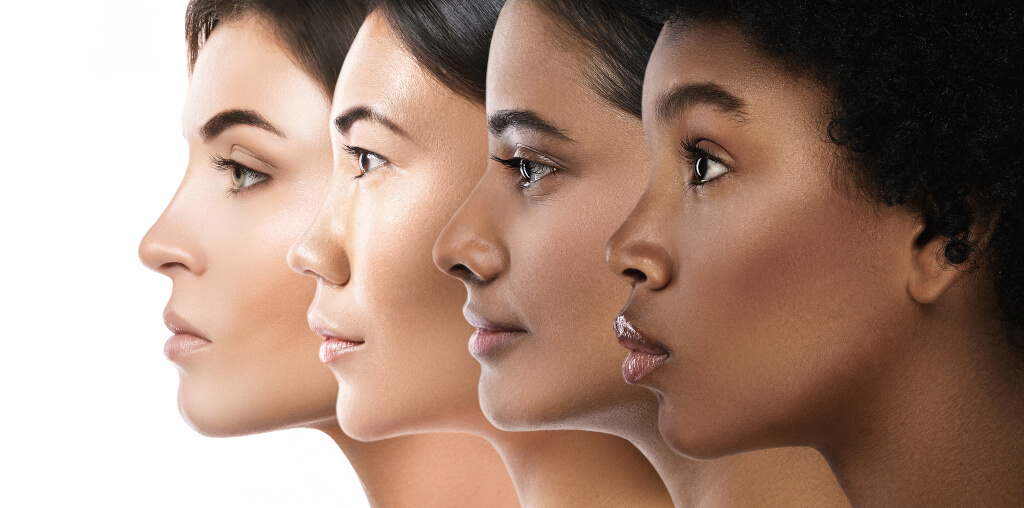The effects of chemotherapy on hair loss can be unsettling, but understanding the underlying processes can provide clarity. Chemotherapy’s impact on cell division lies at the heart of its side effects, including hair loss.
Cancer cells, which divide rapidly and uncontrollably, are the primary target. However, healthy cells that also replicate quickly, such as those in the hair follicles, mouth, stomach lining, and bone marrow, can also be affected. While the intent is to combat cancer, the collateral damage to the hair follicles can lead to temporary hair loss. Fortunately, in many cases, these healthy cells can recover, leading to the regrowth of hair in due time.
The diversity of cancer types, numbering over 200, can be attributed to the variety of cell types in the human body, any of which can potentially develop into malignant tumors. The natural processes of cell division and death, governed by the Hayflick Limit, regulate the cell life span.
Discovered by Dr. Leonard Hayflick in 1965, this limit signifies that cells have a finite number of divisions, typically around 40 to 60 times. While exceptions exist, such as the Woman with Immortal Cells, the general limit poses intriguing questions about human longevity. While religious references, like those from the Bible, allude to mortality, they are not definitive answers in the context of scientific discussion. However, acknowledging the intersection of spirituality and illness can be meaningful for individuals navigating the challenges of cancer.
Stem Cell Therapy as an Alternative to Chemotherapy
Stem cell therapy has garnered attention as a potential alternative to conventional chemotherapy, offering a promising avenue for cancer treatment. The use of stem cells, with their regenerative capabilities, poses a debatable topic surrounding their efficacy in targeting cancer cells without the adverse effects commonly associated with chemotherapy.
Some studies suggest that stem cells could provide a more targeted approach, minimizing damage to healthy cells and potentially reducing the risk of hair loss and other side effects. However, the long-term implications and safety of stem cell therapy as a replacement for chemotherapy remain under scrutiny, prompting ongoing debates within the medical community.
Psychological Impact of Hair Loss during Chemotherapy
The psychological impact of hair loss during chemotherapy is a significant area of debate within the field of psycho-oncology. While the physical side effects of chemotherapy, including hair loss, are well-documented, the emotional and psychological toll on individuals undergoing treatment is often overlooked.
Examining the psychological distress, body image concerns, and self-esteem issues resulting from chemotherapy-induced hair loss raises debates about the need for comprehensive psychological support alongside medical interventions. Discussions about implementing holistic care that addresses the emotional well-being of cancer patients as an integral part of their treatment journey are gaining momentum in the psycho-oncology sphere.
Role of Precision Medicine in Minimizing Chemotherapy-Related Hair Loss
Precision medicine has emerged as a groundbreaking approach in tailoring treatments to individual patients, prompting debates about its role in minimizing chemotherapy-related hair loss. By analyzing a patient’s genetic makeup and specific cancer characteristics, precision medicine aims to deliver targeted therapies, potentially reducing the adverse effects associated with traditional chemotherapy. The discussion revolves around the potential benefits of precision medicine in providing personalized cancer treatments that not only improve efficacy but also limit the impact on patient’s quality of life, including the preservation of hair.
Ethical Considerations in Conducting Chemotherapy Trials
Ethical considerations in conducting chemotherapy trials have become a focal point for debate, encompassing various aspects, including patient autonomy, informed consent, and the use of placebo treatments.
Discussions about the ethical implications of testing chemotherapy regimens that could lead to hair loss and other detrimental side effects on trial participants raise concerns about the balance between advancing medical knowledge and ensuring the well-being of individuals enrolled in clinical trials. Debates center on the importance of comprehensive informed consent, transparent communication, and ethical oversight to safeguard the rights and welfare of patients involved in chemotherapy research.
Cultural Perspectives on Hair Loss and Chemotherapy
Exploring cultural perspectives on hair loss and chemotherapy sheds light on diverse societal attitudes and beliefs surrounding appearance, health, and illness. Debates about the impact of cultural norms and values on individuals undergoing chemotherapy-induced hair loss reveal varying approaches to coping mechanisms, social support, and perceptions of beauty within different cultural contexts. Understanding the interplay between cultural beliefs and the psychological well-being of cancer patients navigating hair loss during treatment highlights the importance of culturally sensitive care and support systems tailored to diverse communities.
Physical Side Effects of Chemotherapy
Chemotherapy can lead to various physical side effects that significantly impact a patient’s well-being. These may include hair loss, nausea, vomiting, fatigue, and increased susceptibility to infections. The debilitating nature of these side effects can diminish a patient’s quality of life and hinder their ability to carry out daily activities.
Impact on Emotional and Mental Health
The emotional and mental toll of chemotherapy can be profound and often overlooked. Patients may experience heightened anxiety, depression, fear, and uncertainty about their prognosis and treatment outcomes. Coping with the emotional strain of chemotherapy can be challenging, leading to feelings of isolation and helplessness.
Risk of Long-Term Health Complications
While chemotherapy is designed to combat cancer cells, it can also pose a risk of long-term health complications. The aggressive nature of certain chemotherapy drugs may cause damage to healthy cells and tissues, leading to potential organ dysfunction or impairment. These long-term health risks may require ongoing monitoring and management even after the completion of treatment.
Financial Burden and Healthcare Costs
The financial burden and escalating healthcare costs associated with chemotherapy can be overwhelming for many patients and their families. Expenses related to treatment sessions, medications, hospital stays, and supportive care services can accumulate rapidly, placing significant financial strain on individuals already dealing with the challenges of a cancer diagnosis.
Impact on Quality of Life and Daily Functioning
Chemotherapy can significantly impact a patient’s overall quality of life and daily functioning. Persistent fatigue, weakness, and physical limitations can impede a patient’s ability to engage in regular activities, work, or maintain social connections. The need for frequent medical appointments and treatment sessions can disrupt normal routines and lead to a profound sense of disruption and dependence.
Coping Strategies and Practical Tips
Hair Care and Scalp Hygiene during Chemotherapy
Maintaining proper hair care and scalp hygiene during chemotherapy can help minimize discomfort and promote a healthy scalp. Use mild, pH-balanced shampoos and consider gentle scalp massages to improve blood circulation. Opt for soft-bristled brushes and avoid harsh styling products that may further damage your sensitive scalp.
Explore Wig and Headscarf Options for Hair Loss
Exploring wig and headscarf options can offer a sense of normalcy and boost your confidence during chemotherapy-induced hair loss. Choose wigs made from natural hair or synthetic fibers that closely match your original hair color and style. Experiment with different headscarf styles and patterns to find a comfortable and fashionable alternative.
Embrace a New Hair Care Routine with Short Hair
Embracing a new hair care routine with short hair can be empowering and practical during chemotherapy. Consider getting a stylish short haircut or shaving your head to manage the effects of hair thinning. Discover simple and easy-to-manage hairstyles that complement your facial features and require minimal maintenance.
Nourish Your Body with a Balanced Diet and Nutritional Supplements
Nourishing your body with a balanced diet and essential nutritional supplements can support overall hair health and growth. Incorporate nutrient-rich foods such as leafy greens, fruits, lean proteins, and healthy fats into your daily meals. Consult with a nutritionist or healthcare provider to identify suitable dietary supplements that promote hair regrowth and strength.
Seek Emotional Support and Connect with Support Groups
Seeking emotional support and connecting with support groups can provide a valuable source of empathy and understanding during your chemotherapy journey. Reach out to friends, family, or professional counselors who can offer emotional guidance and a compassionate listening ear. Join local or online support groups specifically tailored to individuals experiencing chemotherapy-related hair loss for a sense of community and solidarity.




